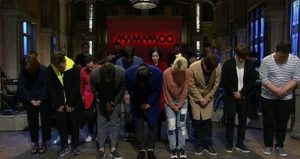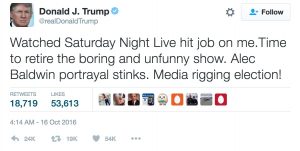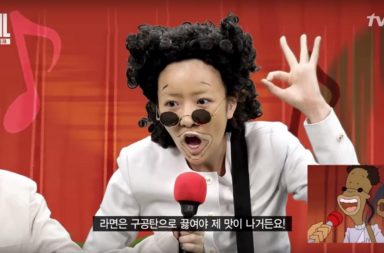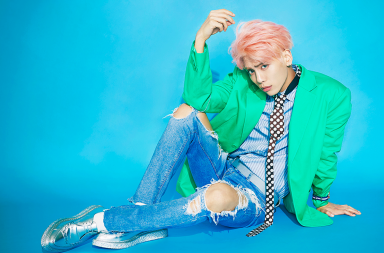 Saturday Night Live Korea has had a bad season. The show has been involved in two back-to-back scandals: first, the sexual assault of various artists including B1A4, Block B and Infinite, and second, the references to actress Um Aing-Ran’s lack of cleavage (unaware that she had recently undergone a mastectomy for breast cancer). The show has now abruptly concluded its eighth season. As netizens call for everything from formal apologies to a complete cancellation of the program, it’s worth looking back holistically on the work of SNL Korea to see how we have arrived at today’s controversies.
Saturday Night Live Korea has had a bad season. The show has been involved in two back-to-back scandals: first, the sexual assault of various artists including B1A4, Block B and Infinite, and second, the references to actress Um Aing-Ran’s lack of cleavage (unaware that she had recently undergone a mastectomy for breast cancer). The show has now abruptly concluded its eighth season. As netizens call for everything from formal apologies to a complete cancellation of the program, it’s worth looking back holistically on the work of SNL Korea to see how we have arrived at today’s controversies.
Some background: SNL Korea is a spinoff of the American TV show Saturday Night Live, which has been on air since 1975. It was originally pitched as a variety show that would mix comedy, satire and music performances, a format it has stayed true to in its 40-plus-season run. While the complaint most consistently lobbed is how the show is not funny anymore, SNL still manages to engage with American society humorously on occasion (see Tina Fey’s impressions of Sarah Palin, or “The Day Beyoncé Turned Black”). Many agree that the show shines brightest during election years, when it manages to raise awareness of the critical issues at hand poignantly and call out candidates and voters alike on their hypocrisy.
 Even in spinoff form, against South Korea’s heavily constrained freedom of press, SNL Korea was meant to make viewers think critically about politics while poking fun at it. This was made clear on the show’s first episode in 2011, when they featured a parody of the SNL writing team working on skits. After someone shares an idea lampooning then-current president Lee Myung-bak, the head writer yells, “You’ll go to jail, punk, and so will I! No political talk on this show, got it?” In this way SNL Korea called out South Korea’s Communications Commission (the government’s media regulation agency) for being under the control of the president, and implicitly indicates how they intend to circumvent censorship through comedy in future sketches.
Even in spinoff form, against South Korea’s heavily constrained freedom of press, SNL Korea was meant to make viewers think critically about politics while poking fun at it. This was made clear on the show’s first episode in 2011, when they featured a parody of the SNL writing team working on skits. After someone shares an idea lampooning then-current president Lee Myung-bak, the head writer yells, “You’ll go to jail, punk, and so will I! No political talk on this show, got it?” In this way SNL Korea called out South Korea’s Communications Commission (the government’s media regulation agency) for being under the control of the president, and implicitly indicates how they intend to circumvent censorship through comedy in future sketches.
But since then, there have been incidents where SNL Korea’s jokes about the government have been curtailed for suspicious reasons. There was the popular season three “Yeouido Teletubbies” segment that aired during the 2012 presidential campaign (from 8:08, below), using Teletubbies at school to parody the four main candidates. This was followed with “Global Teletubbies” in season four, where Teletubbies represented various countries to mock national leaders’ handling of international events.
Perhaps because the sequel was obviously criticizing newly elected President Park Geun-hye (her Teletubby was characterized as having a short temper and violent tendencies), SNL Korea’s parent company CJ Group, and chairman Lee Jay-hyun came under investigation. The highly rated segment was temporarily suspended, and then permanently dropped, under the claim that the writers had “run out of ideas.”
 It’s important to note that in the aftermath of the 2014 Sewol ferry tragedy SNL Korea never parodied Park’s ignorance or lack of response to the situation (she was supposedly at her hairdresser’s while students were dying); even after going off air for six weeks to pay respect to victims, the show preferred to let mass protests and government inquests handle the disaster, rather than use satire to attack the president. The program waited cautiously until the latest uproar to try mocking her relationships, though it is likely they came under fire again – shortly before her impeachment – for their honest commentary.
It’s important to note that in the aftermath of the 2014 Sewol ferry tragedy SNL Korea never parodied Park’s ignorance or lack of response to the situation (she was supposedly at her hairdresser’s while students were dying); even after going off air for six weeks to pay respect to victims, the show preferred to let mass protests and government inquests handle the disaster, rather than use satire to attack the president. The program waited cautiously until the latest uproar to try mocking her relationships, though it is likely they came under fire again – shortly before her impeachment – for their honest commentary.
It seems unlikely that the present impeachment will change anything regarding SNL Korea’s freedom to speak. But without the ability to take jabs at the government, what is the show left with?
Softer social criticism (completely devoid of political references) has come in the form of amusing Grand Theft Auto and Counterstrike parodies featuring cast member Kim Min-kyo. On the other hand, the show’s satire can become too narrow when it uses guest idols to lampoon themselves; the sketches often rely on overly specific fan knowledge that leaves general watchers cold.
Much funnier is when the program manages to combine the use of guest idols with running social commentary. Here we have a small treasure trove, from classics like Brown Eyed Girls’ “Plastic Face,” to the skit mocking Shinee’s sasaeng fans, and Jung Joon-young’s Minority Report parody predicting South Korea’s World Cup outcome, as well as Taeyeon and Baekhyun’s relationship.
https://www.youtube.com/watch?v=iO8HkU8bd_M
Some of the simpler skits have come from the recent “3-Minute” segment, which tend to deploy idol guests by recycling the well-known tropes of psycho boyfriend, ultra-needy girlfriend, and obnoxious sibling. (This AOMG version, with its nod to pet care and Fifty Shades of Grey, is one of the few exceptions.) While it may be fun to watch idols be ridiculous – acting more like fallible humans than star-dusted celebrities – in the end they are safe and easily digestible, relying on slapstick humor to pander to the viewer.
But most insipid are the arbitrarily sexual skits such as “Bra and the City” with G.Na. At worst, equating the worth of women with the size of their breasts reinforces outdated gender stereotypes and the objectification of bodies; at best, there’s just nothing particularly witty or insightful about this juvenile comedy. But unnecessary references to chest size are things that come up again and again on SNL Korea – and it’s this kind of unwarranted sexual humor that has ultimately thrown the show into controversy with both boy groups and Um Aing-ran. It’s a sign that the desire to generate laughs through titillation, rather than social commentary, has finally gone too far.
One early change came in March 2014 when SNL Korea was moved to an earlier time slot, prompting a rating change from 19+ to 15+. These moves successfully increased viewership and generated higher viewer ratings, though whether they successfully clamped down on on the adult entertainment remains doubtful. While the new rating has kept Jay Park from singing about masturbation, the show has still managed to pull out questionably raunchy material that is definitely not 15+.
 It’s unfortunate we live in a time when the freedom of speech is in decline. South Korea is not the only place where satirists have been censored for speaking frankly about the state of politics: China has again tightened rules against critics online, and now Donald Trump is using Twitter to threaten SNL for parodying his colloquialisms. As SNL Korea closes its season early to “reflect and prepare a new image,” I hope that its writers will also look back on the original goals of the show, in a time when the absurdity of politics continues to escalate around the world. Though they may remain unable to call out the president and the government’s failings, I believe they can do better than the vapid sexual humor that has characterized many of their attempts at comedy.
It’s unfortunate we live in a time when the freedom of speech is in decline. South Korea is not the only place where satirists have been censored for speaking frankly about the state of politics: China has again tightened rules against critics online, and now Donald Trump is using Twitter to threaten SNL for parodying his colloquialisms. As SNL Korea closes its season early to “reflect and prepare a new image,” I hope that its writers will also look back on the original goals of the show, in a time when the absurdity of politics continues to escalate around the world. Though they may remain unable to call out the president and the government’s failings, I believe they can do better than the vapid sexual humor that has characterized many of their attempts at comedy.
Readers, what are some SNL Korea skits that have made you laugh? Is there a particular segment you look forward to every week?
(The New Yorker, YouTube [1][2][3][4][5][6][7][8], Freedom House, Dramabeans, Vimeo, The Kyunghyang Shinmun, The Korea Times, New York Times, Dispatch, Dailymotion, Financial Times. Images via: TVING, Dispatch, YouTube, Dailymotion, Twitter)


